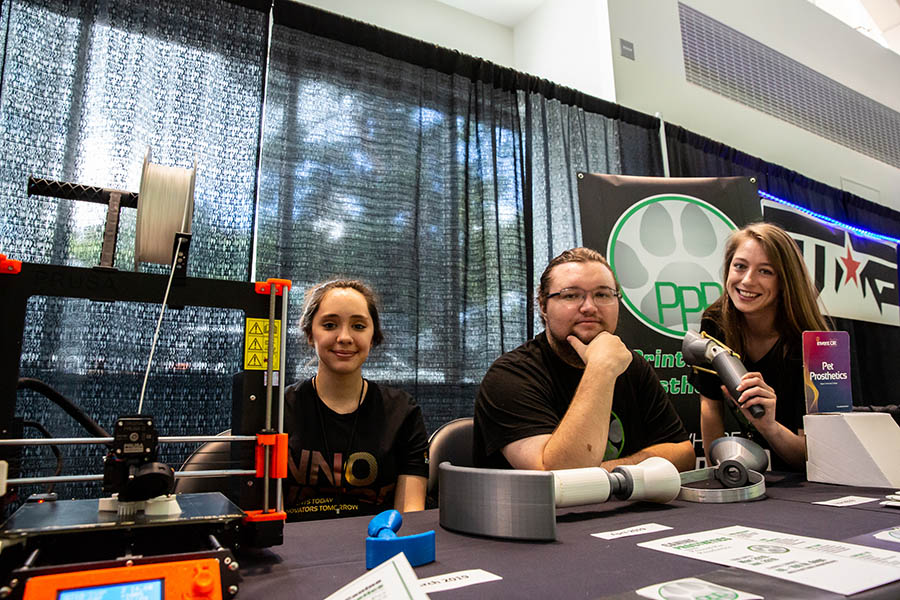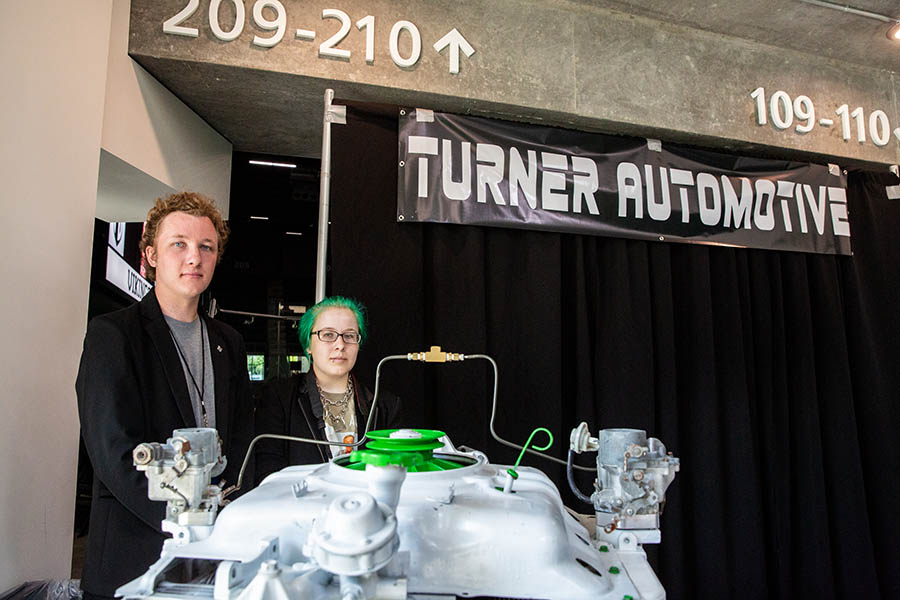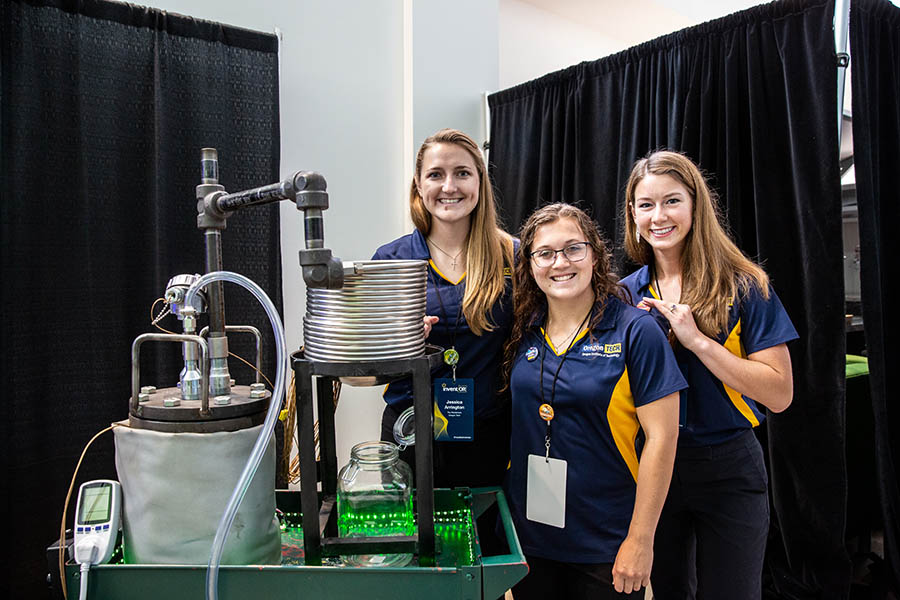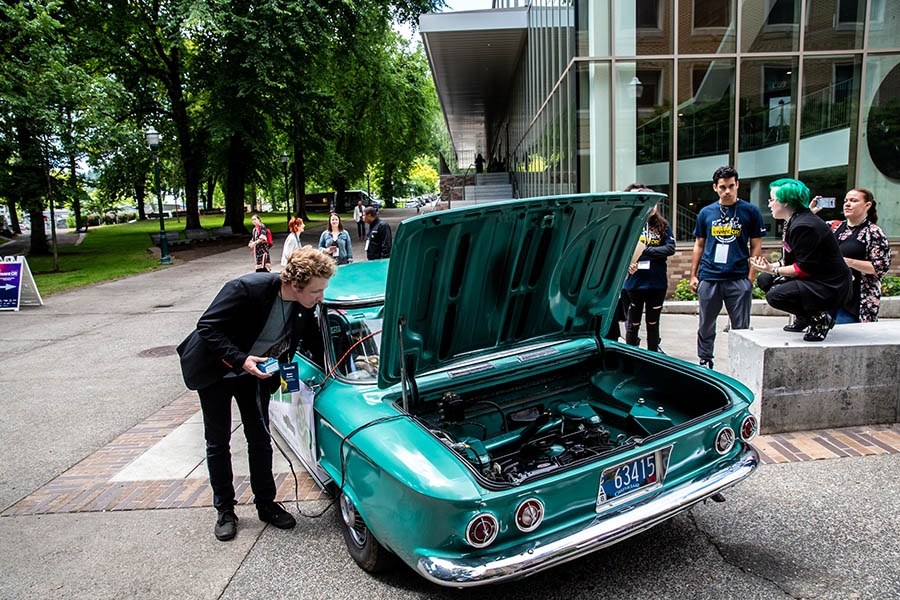Solutions to climate change, renewable energy and predictive artificial intelligence were on show last week when teams of students from around the state tackled real-world challenges at the InventOR Collegiate Challenge.
Hosted at Portland State University’s Viking Pavilion, the InventOR competition gives college teams from across the state the opportunity to present inventions that aim to solve real-world problems through innovation. The 21 teams presented their projects to judges and investors, and competed for $36,000 in prize money.
Now in its third year, the contest receives funding from a wide array of investors, including Wells Fargo, The Lemelson Foundation, and the Oregon Lottery.
Participants included teams from STEM hubs like Oregon Health and Science University and Oregon Institute of Technology, as well entries from Rogue and Klamath community colleges.

Credit: Jason Kaplan
One recurring theme was the creative use of existing, cutting-edge technology to make high-end products more cost efficient. Rogue Community College’s team, Printed Pet Prosthetics, designed customizable pet prosthetics generated entirely via a 3-D printer.
SHIFT AI, the team representing OHSU in the finals, designed an artificial intelligence tool which could potentially reshape the way doctors think about medical imaging and slash the cost of screen for disease.
The artificial intelligence system is able to look at a microscopic tissue stain called an H&E Stain, which are relatively cheap to produce, and generates a more sophisticated immunofluorescence image of the tissue to diagnose disease.

Credit: Jason Kaplan
In addition to medical challenges, plenty of teams chose to tackle environmental concerns, including global and regional challenges brought on by climate change.
Portland State’s Lite Devices team developed a suite of fire-alarm-like sensors to be placed on trees, which would allow for early detection of incoming forest fires.
Also from PSU, Turner Automotive developed a conversion kit that can transform an existing gasoline-burning vehicle into a carbon-neutral, hydrogen-powered vehicle. The kit doesn’t modify any existing components in the car, allowing a 1996 Honda Accord to run entirely on zero-emission energy.
The Reclaimers, a team coming from the Oregon Institute of Technology, designed a device with the ability to convert plastic products back into crude oil. The machine uses a process called pyrolysis, which refers to the chemical separation of materials when exposed to high temperatures.

Credit: Jason Kaplan
The prototype superheats the plastic while removing oxygen. This process converts the plastic into gas, which runs through the system until it condenses into its original crude oil form.
All projects presented at competition had already received funding to develop a prototype of their invention. All in all, $21,000 went to The Reclaimers who took home the coveted $10,000 first prize, as well as $11,000 from other awards. Second-place turner automotive, SHIFT AI, and Printed Pet Prosthetics also walked away with prize money.
To subscribe to Oregon Business, click here.





